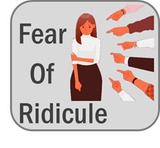Con: Fear of Ridicule
Back to listingViewpoint Against Christianity

“I’m an active user of various social media platforms including Facebook, WhatsApp, Instagram, and X (formerly Twitter). Engaging in daily conversations with my online acquaintances has become an important part of my daily life over the past several years. Recently, I’ve also been participating in Bible studies and church events with some close Christian friends. As a result, I have become more interested in further exploring the Christian story. However, I’m concerned about how openly identifying myself as a “Christian” might elicit a negative response from my social media contacts. If they discover my attraction to “Jesus,” they may turn on me, publicly ridicule my faith, and unfriend me. While I am beginning to realize the advantages of embracing the Christian faith, this potential online backlash worries me greatly. It’s like I am faced with the decision to choose between my current lifestyle on social media and following Jesus. What should I do?”
Background Discussion

Though the contemporary format of social media emerged with the advent of the internet in the late 1970s, the genesis of this type of communication dates to the 1700s and 1800s. During this period, local newspapers and printed pamphlets became more common, based on technological advances that began in the fifteen century when Johannes Gutenberg revolutionized printing with the marked development of moveable type. Initially, these media primarily facilitated one-way communication, but they could sometimes spark strong, even violent, reactions. Thomas Paine, one of the Founding Fathers of the United States, published 16 pamphlets from 1776 to 1783, each starting with the stirring words about the American Revolution, “These are the times that try men’s souls.” In 1914, H. G. Wells wrote an essay in a British newspaper on the need to enter and win World War I. He infamously proclaimed that this conflict would be “The War that Will End War”. These types of early publications, enabled by the modern printing press, offered a hint of the communication power that the coming electronic revolution would enable.
The emergence of social columns in 1900s newspapers provided a platform for local residents to keep abreast of each other’s lives and community events. In addition, the papers’ editorial columns effectively shared perspectives on various issues, including controversial political subjects. However, due to the costs of typesetting and printing, participants in these published conversations were limited by the number of events that could be announced and issues addressed. With the proliferation of the internet, electronic documents, mobile phones, and the massively reduced costs of electronics, the dynamics of two-way communication have undergone a dramatic and public transformation in recent decades.
With projections of more than 20 billion units in use worldwide by 2025, the number of mobile phone and PCs testifies to the explosion our interactive digital era. These devices, many of which are internet-enabled, have not only profoundly transformed individual communication, but, on an unprecedented scale, they have also fostered the formation of communities united by common interests. While this revolution has empowered the individual, it has also has granted a collective a power to publicly mock, humiliate, and disenfranchise those who disagree with their opinions. This spectacle can often play out before audiences that might number in the thousands or even millions. Regarding the ridicule of Christians in particular, Pastor Randy Smith succinctly states the matter: "A mocker goes beyond disagreement with the Word of God. They ridicule it and those who follow it. They have no desire for honest debate. No desire to have their opinions changed. They are arrogant, sarcastic, and pompous. They are filled with pride, derision, and contempt." Thus, there can be risks in publicly professing a “religion” such as Christianity.
Because of the dramatic expansion of communication aided by technological advances, have individuals become emotionally dependent on the lifestyle drug of social media, such that their ability to pursue truth and resist the current “religion” of groupthink has been thereby weakened? Is the potential for social media hell worth pursuing the truth? Could that be why some fear making public their “Christian Decision”? Is following Jesus worth being “excommunicated” from our social media circles?
In Mark 8:38, Jesus says, “For whoever is ashamed of me and of my words in this adulterous and sinful generation, of him will the Son of man also be ashamed, when he comes in the glory of his Father with the holy angels.” Jesus emphasized that, as a Christian, we must be prepared to stand up to this type of social media humiliation. To play your part in the Christian story, you must be willing to take a stand for Jesus, yet with gentle reverence (1 Pet. 3:15). Who knows, maybe one of your social media “friends” will witness your courage and follow in your footsteps and those of Jesus.
Please click on the links to videos, documents, quotes, music, and books that reference how public shame and humiliation are a small price to pay for pursuing what you believe is true. The information is here for you to independently assess why and how you can fight the feeling of shame and humiliation, and thus can make the Christian Decision. This may be the most important decision of your life, or of your death.
There's so much more!
You're asking the right questions, and now you want to dig a little deeper.
